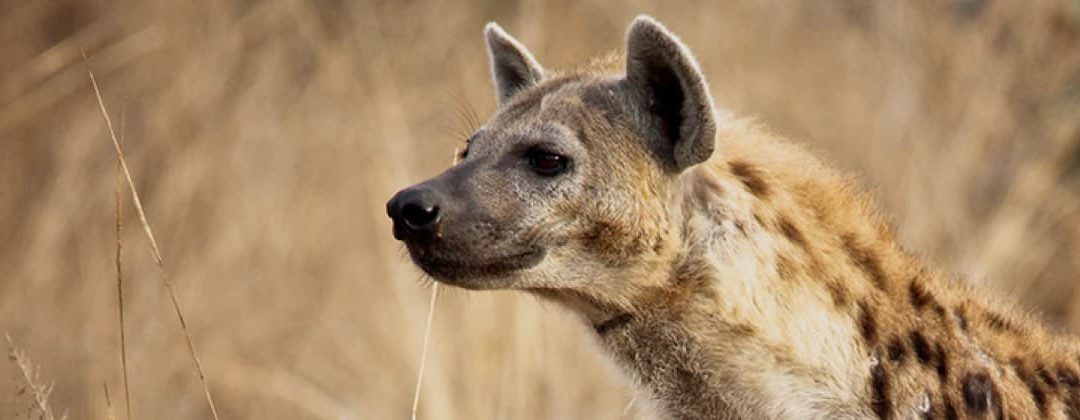Despite being the most abundant member of the large predator guild, the spotted hyaena (Crocuta crocuta) is perhaps the least understood predator within the Okavango ecosystem. Previous work has shown that hyaenas exhibit enormous flexibility in certain aspects of their behaviour, including activity patterns, territoriality, feeding, and clan sizes. Hyaenas can interact with sympatric carnivores through direct competition for resources and intraguild predation, and the specific behavioral ecology of a hyaena population directly influences these intraguild interactions. Identifying and quantifying inter-species relationships is thus directly relevant to the development of appropriate and effective conservation and management strategies for large carnivores.
Jessica’s research utilizes a combination of remote data collection, natural observations, and acoustic and olfactory experiments. Her work has built on the historical hyaena population monitoring undertaken by BPCT and has helped develop a greater understanding of the characteristics of hyaena clans in the study area (number, size, territory sizes) and the social dynamics that govern each clan.
Direct observations of natural encounters between hyaenas and other guild species contribute to our understanding of how hyaenas respond to scavenging opportunities in this ecosystem. Specifically, Jessica’s research examines the impact of a variety of factors (habitat, prey type, competitor species, hyaena sociality, etc.) on the frequency and outcome of these interactions. Her experimental work additionally examines how hyaenas respond to acoustic and olfactory cues (i.e. vocalizations and scent marks) of sympatric carnivores, and investigates whether they utilize these cues to avoid or engage with their competitors.
This work is funded by the University of Nottingham, the Roger Williams Park Zoo, the Cleveland Zoological Society/Cleveland Metroparks Zoo, National Geographic Society Conservation Trust, Wilderness Wildlife Trust, Idea Wild and the Toronto Zoo Endangered Species Reserve Fund. Jessica is currently writing up her thesis.

PHD STUDENT, UNIVERSITY OF NOTTINGHAM
JESSICA VITALE
Jessica Vitale is a PhD student at the University of Nottingham (UK) who started her doctoral research with BPCT in March 2014. Jessica holds a B.S. degree in Biology and Environmental Studies from Brandeis University (USA), and has a wide range of research experience studying animal behaviour within several ecosystems.


Dive straight into the feedback!Login below and you can start commenting using your own user instantly